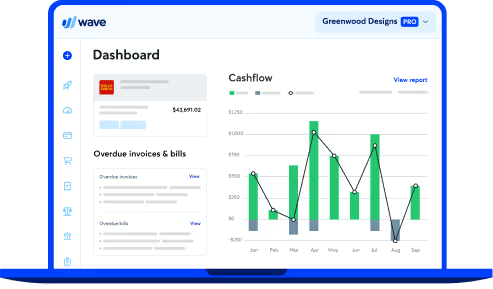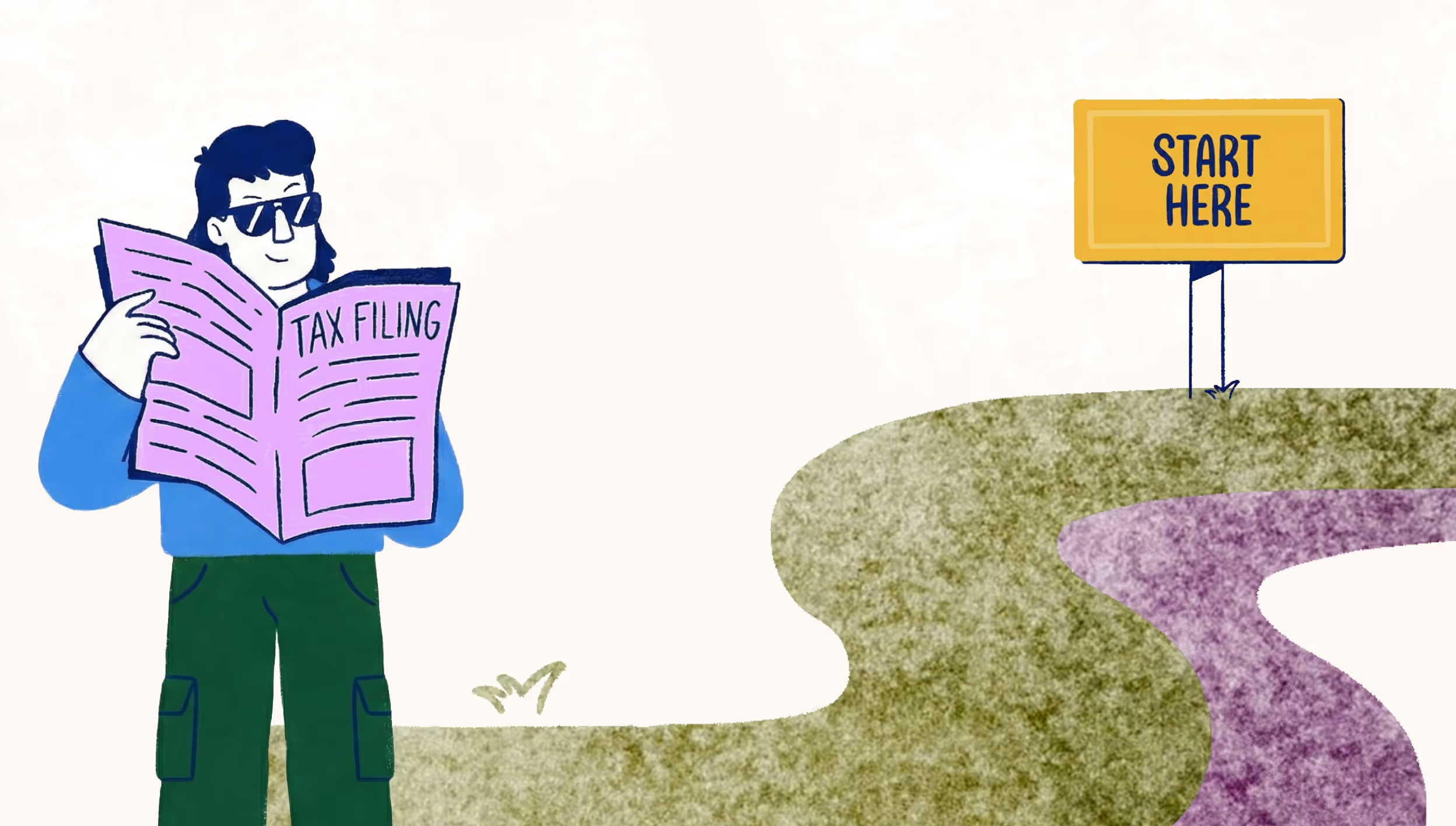
How to choose a bank for your small business
Choosing a bank for your business requires more thought and planning than simply walking into your personal bank and opening up a second account. Your business banking needs will have different requirements than your personal banking, so taking the time to find the right business bank account is an important first step towards financial success.
Whether you’re starting a new business or are simply looking for a change from your current bank, it’s important that you’re not only thinking of your current needs, but how your bank will grow with your business.
Here are a few things to keep in mind on your search for the perfect business bank account:
Know your business goals and banking needs
There are two key pieces of information you need before you begin your search for a bank:
- Your short- and long-term business goals
- Your banking needs based on those goals
Let’s talk about goals. What are your plans for your business? How will you expand and grow, both in the near and distant future? We’re talking about not only financial goals, but overall business goals as well.
“One mistake some businesses make is choosing a bank account that’s not scalable,” says Michael Kern, CPA and founder of Talent Financial, a personal finance and business consulting firm. “A certain account may seem right at the time but if your business increases in size you may outgrow it — without the ability to upgrade to a higher account.”
Here’s an example: Right now, you sell handmade goods on Etsy and at local markets. You’re not ready for a full-on storefront yet, but you hope to grow into one within the next five years. Opening a brick-and-mortar requires a lot of capital, and one way to fund this is through a business loan. In this case, you might want to find a bank that also offers business loans.
While it may be tempting to go with your personal bank, that’s not always the best option. “Your personal bank might not be small business-friendly or offer the best small business rates, or may have high hurdle rates for loans,” says Brian Cairns, CEO at ProStrategix Consulting.
“Small business owners will need to understand what type of services their business will require before they begin their search,” says Jacob Dayan, CEO and co-founder of Community Tax and Finance Pal. “Finding the right bank will take some time, so small businesses should do themselves a favor by setting aside special criteria that they will want out of their bank.”
Finding banks
If not your personal bank, then where should you start looking? Cairns recommends going local. “Building relationships with your local bank or credit union pays dividends over time,” he says. “If they have a history of working with you, you’re seen as less of a risk.” This comes into play with small business lending.
Another place is good ol’ Google. You can start broad, and then narrow down to your specific needs. “Try a search on ‘name of city + business bank + name of industry,’” says Janet Gershen-Siegel, content manager at Credit Suite. “Experiment and see what comes up. But no matter what, it should be a bank familiar with the SMB's industry. That way, the bank will understand seasonal variances and other quirks of the business immediately.”
Your local Chamber of Commerce or industry-specific associations may also have recommendations. Gershen-Siegel points out the National Cleaners Association as a great resource for dry cleaning business owners as an example.
Looking for integrations
Prioritize bank options that work with your existing tech stack, or can be integrated with software you are planning to adopt in the future. “The most important thing to look for, is a bank account that integrates with your accounting software,” says Kern. “It can be a huge pain to manually enter all bank account transactions every week. which could have all been avoided if the right bank had been chosen.”
Small banks vs. big banks
Many banks and credit unions offer similar products and services, so it’s worth taking the time to look at the big picture. When you’re ready to meet with an institution, check in on the sincerity and reputation of the company you may invest in, and see what their general approach is to dealing with entrepreneurs and growing businesses. It’s crucial to ask, 'is the big box bank the fit for me?' If it isn’t, there are several other options you could choose from.
There are benefits and drawbacks to working with smaller local banks or credit unions vs. large national banks.
Big banks generally have access to more funds and more account options, and might be able to give you industry-appropriate advice.
Dayan says most SMBs should stick with smaller, regional institutions. “Regional banks will be more inclined to cater more towards local business clients,” he says. Rather than being a small fish in a big pond, you can be one of their biggest banking customers.
Credit unions have a similar customer-centric approach. “Credit unions have a focus on service, are member-owned, and tend to have lower fees and lower loan closings,” says Cox.
Look for experience in your industry
We noted this before, but it’s worth reiterating: Some banks specialize, or have specific experience in different industries. This familiarity with your industry means they’ll better understand your needs and will be more proactive in advising you on an ongoing basis.
“Ask other business owners in a similar type of business where they bank and what their experiences have been,” says Diana Cox, principal relationship manager at Addition Financial. “Once you've done your research, walk into a branch and see how they respond.” You can ask them questions specific to your industry to gauge their expertise and better understand how they think.
In-person and online needs
If you’re a locally-based business, you’re going to want a physical presence in a convenient location. “Ask about hours of operation,” says Cox. “You can also ask to meet the manager of a branch.” You may also want to find out about ATM locations (and fees) — especially if you plan to open a business checking account.
Many banks offer online dashboards and even mobile apps. Some go as far as letting you deposit checks just by taking a photo with the app. If you’re a mobile business owner, these digital options can save you loads of time and help you get access to funds more quickly, and more consistently.
How your business accepts and makes payments
You need to accept payments from customers, and why not do that through your small business bank? Consider how your customers pay you (credit card, check, direct deposit, cash, etc.) and how that affects your banking needs.
Beyond how, think about how much. Some banks have maximum or minimum withdrawal and deposit amounts, and you’ll want to make sure your cash flow meets those requirements. “Make sure the bank account aligns with the realities of your business,” says Kern. “If it only allows for 50 transactions a month without a fee but you're regularly doing 200, then that's not a good fit. If it requires a balance of $5,000 in the account and your business always has tight cash flow then you may need a bank with a lower minimum balance.”
Loans
We mentioned this before, but if you think you’ll need a business loan at some point, it’s a good idea to find a bank that also does lending. “On Day One, an entrepreneur may just be thinking interest rates and fees, but they should also think of future loan opportunities,” says Gershen-Siegel. “Ask about any time in business or account age requirements for eventual future loans. If the time in business requirement is too long, that could be a sign to look elsewhere.”
If you think a Small Business Administration (SBA) loan might be in your future, you can also find a bank that participates in their Preferred Lender Program to increase your chance at approval. However, with loans, it's important to consider how you'll eventually pay off your business debt.
Compare fee structures
Once you’ve narrowed down your list of potential banks, it’s time to compare rates.
There are also hidden or unexpected fees to consider. “There can be a number of little fees that add up over time,” says Cairns.
“Make sure you determine the structure of the fees and how much they are,” Kern says. “The last thing you want is to get blindsided with a monthly bank service charge.” Some typical charges we see are:
- Service fees
- ATM fees
- Account fees
- Management fees
- Withdrawal/deposit fees
- Inactive account fees
- Overage fees
- Others
You also want to find out if there’s a minimum balance, and a fee assessed when you don’t meet the minimums.
Perks and incentives
Many banks will offer sign-up bonuses or incentives for new customers. While these may be attractive, it’s like buying a car: You’ll end up paying for it elsewhere.
Having said that, there are a few perks to consider. “Perhaps the best incentive to look for is what sort of perks come from maintaining a particular balance for a certain period of time,” says Gershen-Siegel. “This is not just to get the perk. It's also to get and stay in the habit of keeping funds in the account over a longer term.” She also points out how this can improve your chances at getting approved for a small business loan.
Cox reminds SMBs to think about the long-term. “Many business owners can become blindsided by an initial program that offers cash to sign up, and forget to pay attention to what happens after they open the account,” she says. “Some incentive programs can be more like a bait-and-switch tactic, in which the incentive rolls off and the business owner is stuck in an account that’s not the right fit.”
Other factors
Dayan recommends full honesty throughout the process. “You want a bank that is willing to go above and beyond and look at you as a proactive business partner,” he says. Be as transparent as possible.”
Other considerations include:
- Payroll: Some banks offer comprehensive payroll services, which you need to think about if you have or plan to hire employees, or want to pay yourself as a sole proprietor.
- 24/7 customer support: If you operate outside of normal business hours, you’ll need support on your schedule.
- Bank relationship manager: Will you get assigned a dedicated, 1:1 support specialist with experience in your industry?
Moving forward with your small business banking
Choosing the right institution for your small business banking is so important. It’s a lengthy process that is worth doing well, since you probably won’t want to do it again any time soon. The sooner you get started, the sooner you can build credit for your business and set yourself up for future growth.
(and create unique links with checkouts)
*While subscribed to Wave’s Pro Plan, get 2.9% + $0 (Visa, Mastercard, Discover) and 3.4% + $0 (Amex) per transaction for the first 10 transactions of each month of your subscription, then 2.9% + $0.60 (Visa, Mastercard, Discover) and 3.4% + $0.60 (Amex) per transaction. Discover processing is only available to US customers. See full terms and conditions for the US and Canada. See Wave’s Terms of Service for more information.
The information and tips shared on this blog are meant to be used as learning and personal development tools as you launch, run and grow your business. While a good place to start, these articles should not take the place of personalized advice from professionals. As our lawyers would say: “All content on Wave’s blog is intended for informational purposes only. It should not be considered legal or financial advice.” Additionally, Wave is the legal copyright holder of all materials on the blog, and others cannot re-use or publish it without our written consent.


























